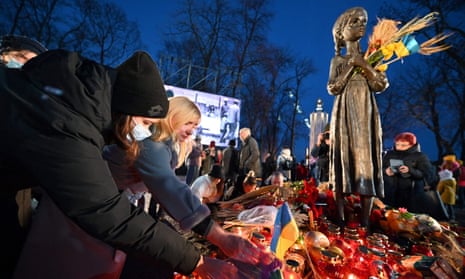Germany’s Bundestag is planning to pass a resolution declaring the starvation of millions of Ukrainians under Joseph Stalin a genocide, a move that parliamentarians hope will serve as a “warning” to Moscow as Ukraine faces a potential hunger crisis this winter.
The resolution, which will be jointly brought to the vote next week by the three governing parties and conservative opposition leaders, will describe the 1932-33 Holodomor as part of “a list of inhuman crimes by totalitarian systems that extinguished millions of human lives in Europe in the first half of the 20th century”.
“People across Ukraine, not just in grain-producing regions, were affected by hunger and repression”, the resolution will say. “This meets the historical-political definition from today’s perspective for genocide.”
The victims of the Holodomor – Ukrainian for “death by starvation” – are traditionally commemorated in Ukraine on the last Saturday of November.
Kyiv regards the historical event as part of a deliberate campaign by Stalin’s regime to collectivise agriculture and root out Ukraine’s fledging nationalist movement. Historians estimate between 4 million and 7.5 million people were killed in the human-made disaster.
Moscow has rejected Kyiv’s version of history, placing the deaths in the broader context of famines that devastated regions of Central Asia and Russia.
“Putin is part of Stalin’s cruel and criminal tradition,” said Robin Wagener, the German Green party MP who initiated the resolution. “Today Russian terror is once again haunting Ukraine. Once again the plan is to use violence and terror to deprive Ukraine of livelihood, to subdue an entire country,” he told newspaper Frankfurter Allgemeine Zeitung.
Knut Abraham, a Christian Democratic Union (CDU) ombudsman of the parliament’s committee on legal affairs and human rights, said the resolution was meant to send a signal to Moscow. “This recognition is even more important because Ukraine has once again become the target of Russian aggression.”
A spokesperson for the German foreign minister, Annalena Baerbock, said: “She welcomes very much that there is a lot of support in the German parliament for this.”
